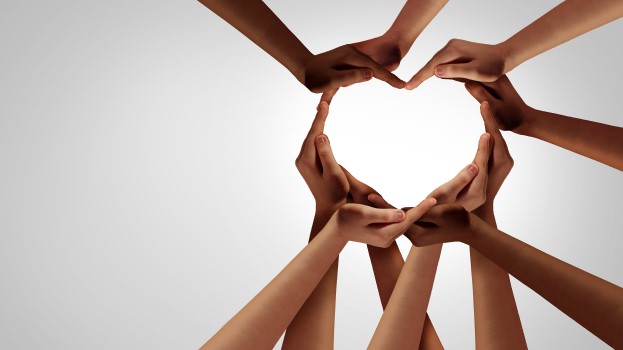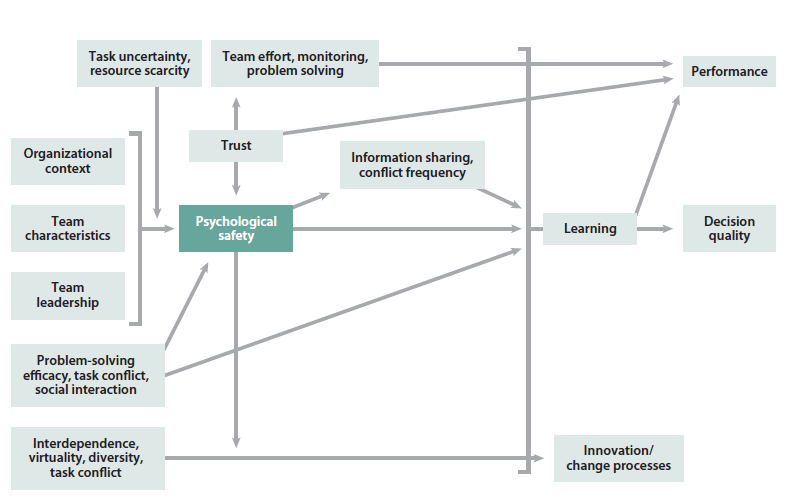Joana Faustino, principal health and wellbeing specialist at Rail Safety and Standards Board, looks at the links between kindness and safety in teams for her CIRAS guest blog.

Kindness: the ability to care for and help others. Kindness is not always a word associated with the workplace. It can be seen as a pink and fluffy concept, attached to vulnerability and weakness. And those have no space in the workplace. Or do they? What if kindness-flooded workplaces were associated with increased wellbeing and performance levels? What if, instead of a barrier to success, kindness was a catalyst?
Kindness and performance
Work can be a powerful protection for our mental health. But the caveat is: in order to do that work needs to support our wellbeing and be a safe space where we can develop ourselves. This is where kindness comes in. Research has shown doing things for others can improve the way we feel. At work, it comes with a bonus. When we help others it usually makes them feel better too. This has the potential to create a feedback loop of positive interactions that can contribute to creating great places to work.
Mutual help in the workplace has been identified as an important factor in facilitating effective team work and increasing productivity. When employees can not only do their jobs individually, but also work well as a team, it benefits everyone. When more experienced workers show newer recruits how the job is done, it may help them learn faster.
Help between colleagues is associated with an increase in team cohesion, decreasing workers’ dependency on their manager. When colleagues support each other, conflict may be reduced, freeing the manager from team crisis management. These can all be seen as examples of kindness.
Psychological safety
But kindness may not be all fun and games. Being kind may expose us more than we would like. Being kind in the workplace can sometimes feel risky. We may fear others’ opinions and imagine consequences that might arise from our kindness. For example, being made fun of or taken advantage of. It is a lot easier to be kind when we feel safe.
The concept of psychological safety, which was introduced by Edgar Schein and Waren Bennis in 1986 and later redefined by William Kahn, relates to the workplace being a safe space for interpersonal risk taking. Put simply, that is when we feel we can contribute freely at work, learning, including from our mistakes, discussing and questioning. And why is this so important? In safety-critical industries, such as rail, mistakes can have huge implications. Punishing mistakes, without creating a space for them to be understood and lessons to be taken and shared, can have even bigger consequences.
When employees are punished after making a mistake, this may decrease their reporting of issues. They may still be making mistakes, they may still have questions about certain procedures. But they may stop communicating them with others, creating huge safety and performance issues.
Leading by example
Accountability is particularly important in safety-critical industries, but it must be managed effectively to improve safety. Trust is the foundation for psychological safety. Although many factors influence psychological safety, leaders influence many of those, as shown in figure 1.
Figure 1 – Group level relationships on psychological safety (Edmondson and Lei, 2014)

The way in which leaders behave impacts relationships within teams, setting the tone and the expectations for interactions and supporting trust. Being available for employees and exploring potential issues with them, allowing space for concerns to be aired, can be key in building trusting relationships.
It is important, however, to recognise that building a safe and fair organisational culture may take time and that individual employees’ experience of safety varies. Some people may, for example, feel more at ease discussing and reporting workplace issues confidentially, because it makes them feel safer.
Creating the space for and encouraging colleagues to support each other, while understanding that each person is unique in their needs, is highly important in developing positive interactions at work that allow companies to remain safe.
Psychological safety can give room for kindness to be expressed freely, with leaders playing a vital role in organisational kindness. And with kindness impacting wellbeing, productivity and safety in organisations, there is nothing fluffy about it.
Find out more
Psychological safety: when companies work in partnership (with a link to our webinar featuring practical examples)
To speak up we need psychological safety
Why supporting mental wellbeing is measurably good for business
Why we may need to start designing jobs with wellbeing in mind
Tags
- Culture
- Health and Wellbeing

